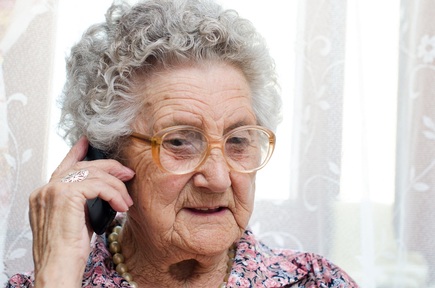UK women live longer than men but have more years of poor health
While it may be true that women have longer lives than men, they also spend more years in poor health according to Public Health England (PHE).

A greater proportion of a woman’s life is spent in poor health - 23 per cent of their life (compared to 20 per cent for British men) according to PHE analysis of figures from the Office of National Statistics (ONS).
This equates to 19 years of poor health on average (compared with 16 years for men in 2014-16) reports the PHE’s annual Health Profile for England report (published 11 September).
Duncan Selbie, chief executive at PHE said: "Inequalities in health undermine not only the health of the people but also our economy.
"As we work to develop the NHS long-term plan, we must set the ambition high. If done right, with prevention as its centrepiece, the payoff of a healthier society and more sustainable NHS will be huge."
British women outlived by most of Europe
The report which covers life expectancy, major causes of death and health inequality also reveals the health of British women is ‘faring worse than their European counterparts’ with women’s life expectancy doing worse than men's.
British women are leading shorter lives than most women in the rest of Europe, according PHE’s analysis of figures from EUROSTAT.
Among the 28 EU member states in 2016, the UK was ranked 10th highest for male life expectancy but only 17th for female life expectancy.
Spanish women were top of the European charts for life expectancy with the longest lives in Europe at birth on average with 86.3 years in 2016, compared to a British woman’s 83.2 years.
Dementia is biggest killer of women but not men
Dementia is already the No.1 cause of death for woman, but the report predicts dementia will overtake heart disease as the leading cause of death for men by 2020, according to the report. Some link this in part to the fact that fewer women die of heart-related diseases in their 50s and 60s than men.
A rapidly ageing population highlights the number of people aged 85 years has tripled since the 1970s and will reach more than two million people by 2031.
Life expectancy in England has reached 79.6 years for men and 83.2 for women with the report stating ‘we’re healthier at every age group than ever before’, however ‘stubborn inequalities persist’ with people in the richest areas enjoying 19 more years in good health than those in the poorest areas.
In 2014–16, males living in the least deprived 10 per cent of areas in England and Wales could expect to live almost a decade (9.3 years) longer than males living in the 10 per cent most deprived areas, and for females the gap was 7.4 years.
Professor John Newton, director of health improvement at Public Health England, said: “Now in its 70th year, demands on the NHS have changed significantly. “More of us are living longer with painful or disabling conditions.
“The challenge now is for the NHS to respond to this changing landscape and to focus on preventing as well as treating the conditions which are causing the greatest disease burden across our nation.”
Latest News
 29-Jul-24
Dementia Bus gives carehome.co.uk staff insight into life with dementia
29-Jul-24
Dementia Bus gives carehome.co.uk staff insight into life with dementia
 01-Mar-24
Find out the top care homes in 2024
01-Mar-24
Find out the top care homes in 2024
 21-Mar-23
UK's top care homes in 2023 revealed
21-Mar-23
UK's top care homes in 2023 revealed
 03-Jan-23
carehome.co.uk launches free care helpline
03-Jan-23
carehome.co.uk launches free care helpline
 13-Dec-22
5 mins with Emily Whitehurst, chief operating officer for Constantia Healthcare
13-Dec-22
5 mins with Emily Whitehurst, chief operating officer for Constantia Healthcare